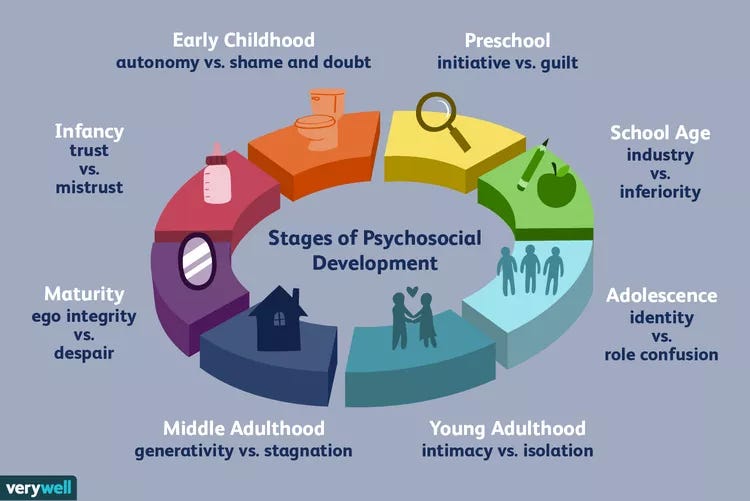18 Ways to Navigate Change.
You never go back to the way things were.
Starting a job, leaving a job, getting married, getting divorced, having children, losing a loved one, becoming ill, moving to a new town, graduating from school, meeting a new best friend… It’s said that on average adults experience a disruptive event every 18 months. Isn’t that crazy? What’s more shocking is how little we know about the tools to cope with those events, individually.
We claim these events as change, the end of a cycle, or the beginning of a new one. They are hard to cope with and hard to trigger. Albert Einstein once said that we cannot solve our problems with the same thinking we used to create them. Pay close attention to the areas of your life where you feel tension, and odds are you’ll discover at least some resistance to change.
Do you need to make something different? Or remain still, while everything around you changes? Could being still make the difference?
Do you need to break expectations and defy the status quo, to become what others could not imagine? Or rather, to keep the status quo while everyone around you believes in new things? What if you need to unlearn to break the status quo? When everyone is sick, we no longer consider it a disease.
Can you say you’ve changed more than someone else has? When you return to your roots and the people you grew up with, can you really describe them as changed? Beliefs, friends, family, feelings, thoughts. What if someone’s thinking hasn’t changed at all, is that a bad thing?
There are more questions than answers. It’s what happens when we face change. And I can’t live without feeling I’m changing. I’ve defined change within my own boundaries. I’ve gone through things that are hard to grasp and recognise even for myself. Sometimes when I look back, I realise there were parts of myself I hadn’t noticed had changed. I found it so timely to read Brad Stulberg’s Master of Change, and thought it helpful to list 18 lessons on navigating change that will stay with me.
Change is inevitable, focus on what you can control.
The fact that everything in this world is transitory increases its value. To live is to lose. Change is to lose. Limitation on enjoyment raises the value of enjoyment. Accept the beauty as you also accept its loss.
After surviving the Holocaust, Viktor Frankl wrote “Tragic Optimism,” arguing that change is accepting the negative while leaving room for the positive. He concludes that there are three inevitable tragedies in life: (1) Pain and suffering, because we are made of flesh and bone. (2) Guilt, because we have some freedom to make choices, and thus we feel responsible when things don’t work as we hoped. (3) Our ability to look ahead, since everything we cherish, including our own lives, will eventually change or end.
Before most religions, the ancient Stoic philosopher Epictetus opened his handbook with this line: “Of things some are in our power, and others are not.” In 1951, theologian Reinhold Niebuhr shared the same idea in his Serenity Prayer: “God, grant me the serenity to accept the things that I cannot change; courage to change the things I can; and wisdom to know the difference.” Focus on what you can control, and do it right. Make bold acts. Prepare for that test. Wake up early, or sleep later. Get obsessed about what gives you energy and what you can do something about.
You never go back to the way things were. You don’t go from disorder to the same order, but rather to reorder, reintegrate, reorientate, repair. Recovering from a traumatic change means moving forward with a greater tolerance for emotional distress. We achieve stability through change, and with it our compassion for others who are suffering.
Having a list of values helps you navigate change.
Values help us navigate change like a ship navigating turbulent waters. They’re the principles by which you live, the boundaries of your identity that guide how you differentiate, integrate, and navigate your path. Choose a short list: three to five. The shorter the better.
Rank your values. In Awaken the Giant Within, Tony Robbins suggests that when we rank love over comfort, we can prioritize service over our own discomfort. Or when we place adventure over success, we might choose a summer hiking trip over sacrificing more time to ambitious goals. Ranking helps you decide easier, better.
Even when we don’t know where the path leads, we’d be wise to simply do the next right thing. This gives us the best chance of getting where we ought to go.
The best approach is to combine fierce self-discipline with fierce self-compassion. If you know that you can be kind to yourself, then you can go to tough places, knowing that you’ve got your own back.
Your definition of identity affects how you navigate change.
If your identity becomes too much of one concept, such as your age, how you look in the mirror, a relationship, or your career, then you are likely to face significant distress in times of change. Instead, be fluid. Bond all your unique parts. Compare it to mountains—they are always wearing down, getting rounded and gentler; they can look permanent and peaceful, but their changes aren’t always so peaceful.
You become a different person depending on who you are with, where you are, and what you’re doing. This is the idea behind “Field Theory,” coined by social scientist Pierre Bourdieu. This is helpful to complement your identity and see the world in multiple ways.
Your ego should evolve with age. Otherwise, you can face an identity crisis. Psychoanalyst Erik Erikson illustrated this with eight stages of ego development: adolescence brings identity versus role confusion, young adulthood brings intimacy versus isolation. The final stage, maturity demonstrates both deep empathy and self-acceptance. It cherishes its own idiosyncrasies and those of others, and it understands both separateness from and connection to everything around it. The opposite is despair; elders who don’t know how to be elders.
A fluid sense of self embraces non-duality: Not differentiated or integrated, but differentiated and integrated; not separate or connected, but separate and connected; not conventional or ultimate, but conventional and ultimate. Psychologist Daniel Kahneman suggested asking yourself “what might this be true of’ when considering someone’s opinion.” Ask, is this view helping me right now? This can help you choose between an independent and interdependent decision.
Allow yourself time to process change.
Don’t force meaning and growth. Let them come on their own time. Finding balance after going through a change requires its own schedule. We need to give our psychological immune systems space to process disruption. As the Tao Te Ching asks: “Do you have the patience to wait till your mind settles and the water is clear?”
Change and disorder can make us feel down, depressed, burned out, void of growth and meaning. These feelings are inevitable parts of being human.
Separate real fatigue from fake fatigue: the first requires rest, the second calls for action. You can tell the difference when the next step toward your goal energises rather than exhausts you.
Create distance from issues when they happen: What would the old you say? What would it look like if you followed counsel right now? What would your best friend tell you if they were watching from outside?
Your next feeling depends on how you define happiness and suffering.
Happiness equals reality minus expectations. Recovering from disillusionment requires more work than managing expectations in the first place.
Suffering equals pain times resistance. Maybe you can’t avoid pain, but you can accept it.
The opposite of change is permanence. There’s a brief serendipity in seeing the world pause in the blink of an eye, noticing how wind is the only thing making your surroundings move. Hearing nothing but your breath, finding peace in knowing that everything around you is the same. The outcome of a walk, the end of a week, the permanence of your own self. But there’s a trap in believing that everything will remain the same. It limits us. It breaks the cycle of living. That’s why we most admire those who stay open to change.
Master of Change gave me a stronger lens for navigating disruption. If you’re interested in more recommendations like this, check out my monthly reading list. I spend most of my time reading and sharing my best recommendations by the end of every month. You can get the next one by subscribing below!



